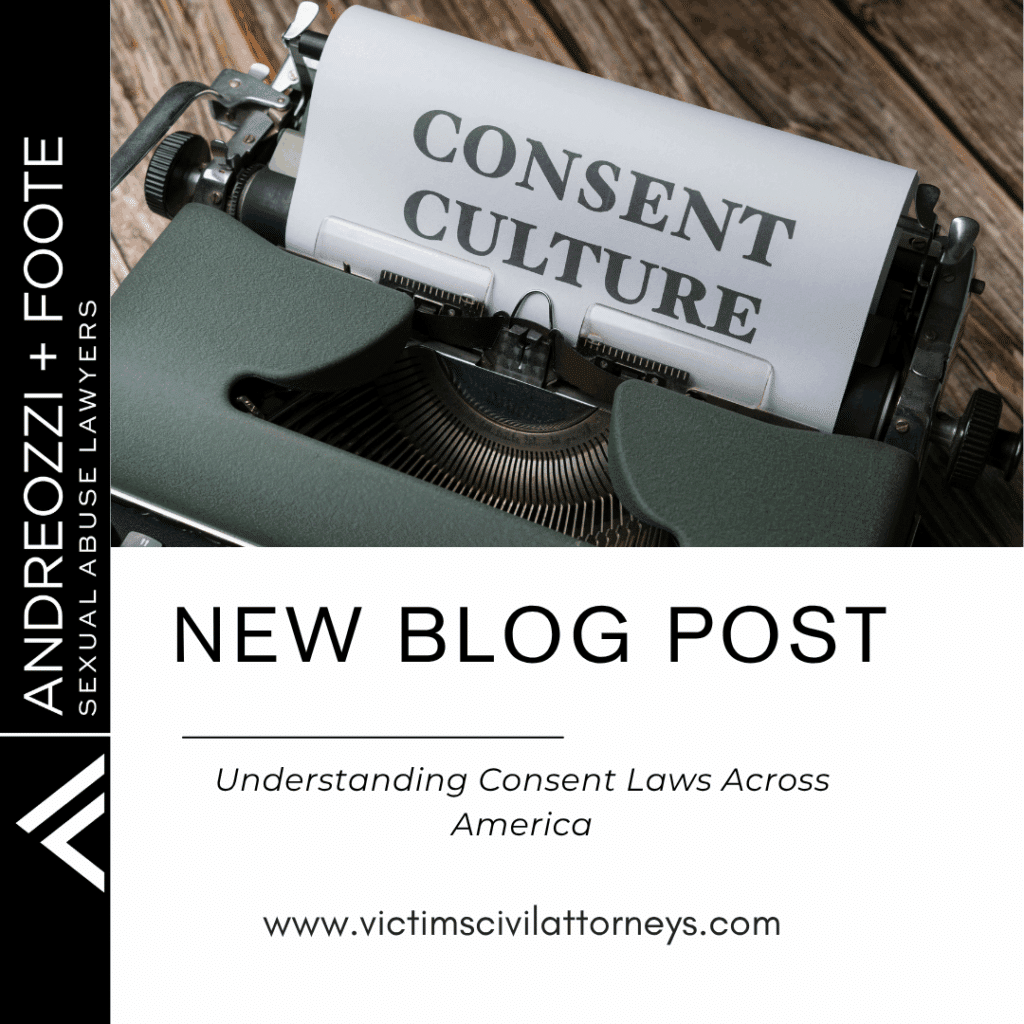Consent is a fundamental aspect of any sexual engagement, yet it’s an area that people are only recently fully educated on. The inconsistency in laws does not help the matter.
Every U.S. state sets an age of consent typically between 16 and 18 years old, depending on jurisdiction. But the real protections extend beyond that number. States often impose enhanced consent rules when an adult holds authority over a minor—teachers, coaches, and employers. In these dynamics, even reaching the standard age of consent doesn’t guarantee legality. The law acknowledges the imbalance of power and intervenes to prevent manipulation and exploitation.
While statutory consent ages protect most minors, loopholes remain particularly when disclosure is delayed, trauma clouds memory, or the survivor fears retribution. That’s why laws must also permit delayed claims, and why statutes of limitations for sexual abuse warrant elimination altogether.
The Summer Willis Act: A Game-Changer for Consent in Texas
Texas’s Summer Willis Act defines affirmative consent: only a clear, voluntary “yes” counts not silence or assumption. In addition, it prohibits NDAs covering sexual abuse, giving survivors freedom to speak and sue. These eligibility reforms help survivors overcome fear and secrecy rooted in trauma and power imbalances.
Key elements of the Act include:
- Affirmative Consent: Requiring clear, voluntary agreement not silence or lack of resistance.
- Clarity for Prosecutors: Assists in building and proving assault cases.
- Transparency for Survivors: Bans NDAs that previously kept abuse quiet especially in child sex abuse cases
Summer Willis was assaulted after an assailant plied her with drinks to the point of blacking out-then he raped her. The laws in Texas did not consider her case a crime since she willingly drank the alcohol.
Alcohol-Facilitated Rape: A Legal and Public Health Crisis
One of the most misunderstood and inconsistently prosecuted forms of sexual assault is alcohol-facilitated rape when a perpetrator exploits a victim’s intoxication to commit sexual acts without consent. Studies show that at least 50% of all sexual assaults involve alcohol, with young women at particularly high risk in social or campus environments.
Yet state laws vary widely: some require the victim to be completely unconscious to establish non-consent, while others recognize that incapacitation due to voluntary intoxication still negates the ability to consent legally. This legal inconsistency leaves many survivors without recourse simply because they drank. Laws like Texas’s Summer Willis Act, which clearly define affirmative consent, mark progress but more states must follow suit and update outdated statutes to reflect how alcohol impairs judgment, memory, and the ability to meaningfully say “yes.”
Statutes of Limitations & Why They Must Be Abolished
The Problem With Time Limits
Most states impose civil and criminal statutes of limitations (SOLs) on sexual abuse claims often 3–10 years after abuse or after a survivor turns 18. But research and survivor stories show delayed disclosure is normal: emotional trauma, family dynamics, and fear can silence people for years even decades.
Surface-Level Reforms Won’t Cut It
Reforms like New York’s Child Victims Act extended SOLs and opened a one-year revival window but critics say that’s still insufficient for all survivors.
Other states (e.g., Louisiana) extended windows or reinstated them but full abolition offers survivors the justice they truly deserve.
National Momentum
- 33 states have introduced SOL reforms, with 18 eliminating criminal SOLs and 20 abolishing civil limits altogether.
- New York is considering further reforms to eliminate civil SOLs and expand corporate accountability.
- Maryland removed its criminal SOL in 2023 leading to thousands of new claims, prompting lawmakers to limit liability caps instead.
These efforts reflect a growing recognition: justice delayed is often justice denied especially for child survivors.
How Andreozzi + Foote Supports Survivors
- Mapping the legal terrain: We evaluate your story against evolving consent laws (like Summer Willis), authority-disclosure rules, and SOL constraints.
- Trauma-informed advocacy: We know survivors often delay disclosure for valid reasons. Our strategy reflects compassion and legal acumen.
- Legislative and litigation strategy: As laws evolve, our team has led precedent-setting cases and public policy efforts to eliminate timelines and NDAs.
Call to Action
Survivors deserve the right to heal on their own timeline. As Summer Willis and other legal reforms gain ground, it’s clear: all states must abolish statutes of limitations to support the unique journey of trauma survivors.
If you or a loved one experienced childhood sexual abuse, regardless of how long ago, you still deserve justice. Contact Andreozzi + Foote for a sensitive, knowledgeable consultation. We’ll help you understand your rights and fight for them.
Contact us today 1-866-753-5458


